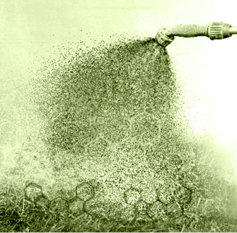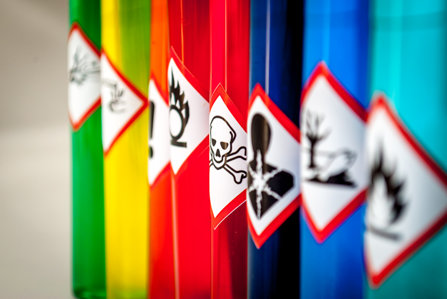What Are Synthetic Cannabinoids?

The general public might not understand what synthetic cannabinoids are. That wouldn’t be very surprising considering that this type of drug is constantly changing, constantly being altered, and renamed or reclassified by manufacturers to avoid confiscation by law enforcement.
As there is an unfortunate movement across America to normalize not only cannabis but the varying types of altered and chemically enhanced forms of cannabis, Americans should become informed on what synthetic cannabinoids are, what makes them harmful, and what to do if a family member or loved one is using such drugs.
Synthetic Cannabinoids; Defined
Synthetic cannabinoids refer to a variety of drugs since synthetic cannabinoids are a drug type, not a particular drug. According to the National Institute on Drug Abuse, “Synthetic cannabinoids are human-made, mind-altering chemicals that are either sprayed on dried, shredded plant material so they can be smoked, or sold as liquids to be vaporized and inhaled in e-cigarettes and other devices. These chemicals are called cannabinoids because they are similar to chemicals found in the marijuana plant. Because of this similarity, synthetic cannabinoids are sometimes misleadingly called synthetic marijuana (or fake weed), and they are often marketed as safe, legal alternatives to that drug. They are not safe and may affect the brain much more powerfully than marijuana.” In short, synthetic cannabinoids are not marijuana.
Synthetic cannabinoids belong to a drug group called New Psychoactive Substances, or NPS for short. NPS refers to unregulated, mind-altering drugs that have become newly available and which are intended to produce the same effects as illegal drugs. New Psychoactive Substances like synthetic cannabinoids are often packaged in colorful foil packages or plastic bottles and sold under various brand names in drug paraphernalia shops, convenience stores, novelty shops, gas stations, and online.

Not such drugs are sold “legally,” but they often have no physical connection to cannabis. The dried leaf matter on which the mind-altering chemicals are sprayed is not necessarily cannabis leaves. The chemicals used are almost always cannabinoid compounds made in laboratories, not synthesized from cannabis plants.
As synthetic cannabinoids have become more popular, authorities have tried to make it illegal to sell, buy, or possess the chemicals used to make the liquid alterant sprayed onto the plant matter. Unfortunately, drug manufacturers easily sidestep such measures by changing the chemical formulas in their mixtures.
Synthetic cannabinoids are dangerous for a variety of reasons which compound to make for a particularly harmful substance:
- Users have easy access to synthetic cannabinoids because these drugs are technically legal and available for purchase at many stores and online.
- There is a false belief that synthetic cannabinoids are altered marijuana, a “slightly modified natural substance,” and are therefore safe and harmless.
- Another critical factor is that young adults and adolescents have become more interested in synthetic cannabinoids, putting a demographic with an already higher-than-normal risk-taking behavior in further danger.
- Yet another factor that adds harm is that the chemical composition of synthetic cannabinoids is almost always unknown and constantly changing, meaning that users never know exactly what they’re getting.
- Finally, synthetic cannabinoids do not easily show up on drug tests, incentivizing people to use them over drugs that do appear on tests.
The above is not a complete list. Many factors make synthetic cannabinoids particularly harmful, the above being the most common.
Examples of Synthetic Cannabinoids
Synthetic cannabinoids come under a wide variety of brand names, and they appear in an even wider variety of forms. Most synthetic cannabinoids are sold in foil packages or plastic bottles. Common names for synthetic cannabinoids include K2, Spice, fake marijuana, fake weed, or synthetic cannabis. Newer street names for synthetic cannabinoids include Scooby Snax, Bizarro, Mr. Nice Guy, and Red Dawn X.
It’s important to remember, though, synthetic cannabinoids are not marijuana. Quoting a NIDA statement about this drug type, “Synthetic cannabinoids may affect the brain more powerfully than marijuana. Their effects can be unpredictable and, in some cases, more dangerous than cannabis.” Concerned family members, loved ones, public health officials, community members, opinion leaders, and other involved parties must remember that synthetic cannabinoids are falsely associated with marijuana to make the drug seem more appealing to young people and to make users think the drug is safe.
What Makes Synthetic Cannabinoids Different From Marijuana?

The key difference between synthetic cannabinoids and marijuana is that marijuana is a plant that occurs in nature. Synthetic cannabinoids are leaf matter that has mind-altering chemicals in liquid form sprayed onto the plant. The only similarity between synthetic cannabinoids and marijuana is that the chemicals used to make synthetic cannabinoids may have similar effects as THC, the mind-altering chemical found in the marijuana plant.
One of the primary differences between synthetic cannabinoids and marijuana is that synthetic cannabinoid products are extremely harmful, even life-threatening. The same is true of marijuana, but synthetic cannabinoids are thought to be considerably more dangerous. Quoting the CDC warning on synthetic cannabinoids: “The Illinois Department of Public Health (IDPH) has received reports of multiple cases, including some deaths, of severe bleeding among people who have used contaminated synthetic cannabinoids. Other states also have reported similar cases. ... Synthetic cannabinoid products can be toxic. As a result, people who smoke these products can react with rapid heart rate, vomiting, agitation, confusion, and hallucinations. Some have to get help from emergency medical services or in hospital emergency departments or intensive care units.” People don’t usually associate marijuana as a cause of death, though such an event is possible. But when it comes to synthetic cannabinoids, on the other hand, these drugs are extremely dangerous and people have died from using them.
The Effects of Using Synthetic Cannabinoids

Because the chemical composition of synthetic cannabinoids is constantly changing, the effects of such drugs are entirely unpredictable. Some of the signs and side effects of synthetic cannabinoid use include:
- Elevated mood
- Altered perception
- Hallucinations
- Symptoms of psychosis
- Delusions and disordered thinking
- Extreme anxiety
- Confusion and distortion
- Paranoia and extreme, unreasonable distrust of others
- Rapid heart rate
- Nausea and vomiting
- Violent behavior
- Suicidal thoughts
- Headaches
- Anxiety
- Depression
- Irritability
- Addiction
- Overdose
- Toxic reactions
- Elevated blood pressure
- Reduced blood supply to the heart
- Seizures
- Kidney damage
- Death
Because every new batch of synthetic cannabinoids is made with slightly different chemicals to avoid confiscation by law enforcement, there is no way to be sure what type of physical reactions one might have from taking such drugs. Quoting the CDC, “Synthetic cannabinoids are not one drug. Hundreds of different synthetic cannabinoid chemicals are manufactured and sold. New ones with unknown health risks become available each year.” This unpredictability factor is part of what makes synthetic cannabinoids so dangerous.
Addiction Treatment; How to Break Free from an Addiction to Synthetic Cannabinoids
If someone you know uses synthetic cannabinoids, it’s essential to help them get off of the stuff as soon as possible. The best and safest way to do this is to help them get into a residential drug and alcohol addiction treatment center. Such a program can assist them in addressing the physical, behavioral, personal, and spiritual aspects of drug addiction.
The biggest mistake people make with synthetic cannabinoids is they do not take the risks of such drugs seriously. They assume it is the same thing as marijuana, which it is not. Don’t let your loved one contribute to the growing statistic of people who have lost their lives to synthetic cannabinoids. Help them find a treatment center today.
Sources:
- https://www.drugabuse.gov/publications/drugfacts/synthetic-cannabinoids-k2spice
- https://www.drugabuse.gov/drug-topics/synthetic-cannabinoids-k2spice
- https://www.cdc.gov/nceh/hsb/chemicals/sc/default.html
- https://www.cdc.gov/nceh/hsb/chemicals/sc/About.html


